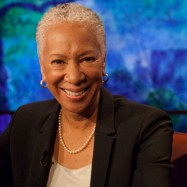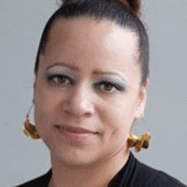The Civil Rights Movement generated a racial landscape that is infinitely more complex than the planners of the March on Washington likely predicted. I owe my own presence here to the anti-discriminatory ethic that shaped the 1965 Immigration and Nationality Act. That Act closed national quotas and preferences for Western Europeans, and overturned 80 years worth of restrictions on immigration from Asia, South Asia, Southeast Asia and the Pacific Islands. President Johnson assured Americans that the legislation would have minimal effect, involving only thousands, not millions, of people. Little did he know that by 2012, the majority of babies born annually in the United States would not be white.
The March on Washington advanced a multiracial vision of American society grounded in the liberation of African Americans. The Japanese American Citizens League participated, as did many white Americans, and the jobs demand addressed white unemployment as well as black. But to the extent that the March agenda remains unfinished, a fully multiracial contemporary movement must take up the charge, for two reasons.
The first reason is need. Dozens of communities of color, speaking hundreds of languages and dialects, are denied the right to vote, access to affordable housing, desegregated public schools, and freedom from police brutality. In Minneapolis, Minnesota, for example, a racial equity impact analysis of school closure proposals revealed that those most affected would be Native American and Somali immigrant students. Poverty rates among Hmong, Bangladeshi and Vietnamese immigrants rival those of blacks and Latinos.
Second, some communities of color, particularly those with a bit of economic mobility, are prime targets for honorary whiteness. They are offered a slightly higher position in the racial hierarchy in exchange for upholding the good old American individualism that somehow always reinforces white privilege. If communities that aren’t white or black can see their experiences through a race lens and join the fight, they will enable the kinds of victories that put us, in Dr. King’s words, on the sunlit path of racial justice.
I am not talking about linking separate movements in alliances, but rather a more ambitious view of ourselves in a single movement. I am deeply inspired, for example, by the work of Communities United for Police Reform, which is on its way to eradicating New York City’s stop and frisk practice. The constituency against stop and frisk is comprised of long-time African American and Latino sufferers of police misconduct, newer South Asian, Arab and Muslim victims, and white residents who see right through the public safety arguments for keeping the policy. These communities may build smaller independent organizations that can engage a community’s specific experiences and resources, but they come together in a single movement, a single focused campaign, with demands designed to solve the problem for everybody.
Being in the same movement rather than being allies is a subtle shift in how we think of one another — the kind of shift that we want the entire country to make. Being part of a single whole makes us think, plan and act together. It is not about crafting independent agendas and asking for or offering support later. That can work out quite well, but it isn’t a relationship that offers the same sustenance and strength as being in the same movement.
The demands of the March on Washington weren’t just about reshuffling the racial order; they repudiated racial hierarchy itself. If our goal is indeed to take the racial order apart rather than just to make it work for one group or another, everyone with a stake in the American race debate has to be engaged.
Rinku Sen is the president and executive director of the Applied Research Center (ARC) and the Publisher of the award-winning news site Colorlines. Sen has helped cultivate groundbreaking stories on immigration including ARC’s Shattered Families report, which changed the immigration debate by releasing the first estimation of children who lose their parents in the collision of immigration, criminal justice and child welfare systems. She was the architect of ARC’s 2010 “Drop the I-Word” campaign for media outlets to stop referring to immigrants as “illegal,” resulting in the Associated Press, USA Today, LA Times, and many more outlets dropping the i-word. A longtime leader in the racial justice movement, Sen is the recipient of numerous fellowships and awards for activists and journalists, including being named a Prime Movers Fellow and one of Ms. Magazine’s “21 Feminists to Watch.”










